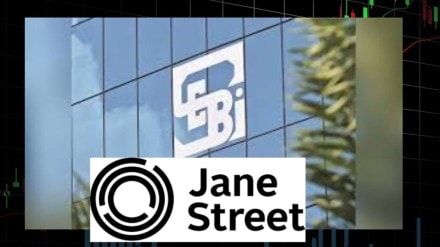The interim SEBI ban on Jane Street has raised more questions than answers. Not only does it underscore focus on governance, but also what it could mean for future trades. According to Jefferies, as “Jane Street was a large player, this may impact volumes.” They believe that this could “partly be offset by any uptick in prop activity.” The report also highlights why prop traders consider the impact from Jane Street to be manageable.
Jefferies on impact of Jane Street order
SEBI’s interim order on Jane Street has created quite a furore. According to Jefferies, the US trading giant can contest the claim or settle it and continue participation in the market. “Jane Street participated in the cash and derivatives markets as an FPI as well as a member, hence, its contribution in market volume would be included in FPI as well as prop categories,” Jefferies added.
Given that the inquiry was already underway, “we understand its activity levels have declined over the past few months. As per data from exchanges, FPIs form 3-8% of equity derivatives turnover, and prop traders form 60-65% of the total; the rest is by individuals & others.” Jefferies explained.
Jefferies, in its report, also shared feedback from conversations with market participants. Three key facts emerged as per that,
“(1) Prop traders/HFTs see a manageable impact from Jane Street’s exit as the fall in its turnover may be made-up by props/HFTs as manipulative factors potentially reduce
(2) There should not be a counter-party risk on Jane Street’s contracts, as trades are covered by the clearing corporations, and JS has 3 months to unwind open positions
(3) Hedge funds largely operate with larger positions in Single Stock Futures (SSFs), and their trading in options is limited.”
However, they added that “what is unclear is how to judge impact; on Friday, July 4, when index options premium t/o was up WoW.” According to them, the trends over the next week on derivatives volumes will be key to watch, especially the index derivatives expiries on Tuesday & Thursday.
Interestingly, the Index Options premium turnover was a tad higher WoW for both exchanges (i.e., this July 4 Vs June 27) and a tad lower than the 2-month average.
Jefferies: Impact of Jane Street order on BSE
Jefferies expects to see limited impact on BSE. They explained that “for BSE, derivatives drive 58% of the estimated FY26 revenue. In this segment, FPIs drive 3-4% of turnover, and we estimate that contribution from Jane Street would be a smaller subset of that (1%, as per Jefferies estimates). A 100 bps impact on our FY26 premium may impact EPS by 60-70 bps.”
Jefferies: Impact of Jane Street order on Nuvama
Nuvama, in comparison, may see a higher impact. Jefferies explained that, “in the case of Nuvama, asset services form 26% of the estimated FY26 revenues, while contribution to profits is higher given lower cost-to-income ratios.” They believe that Jane Street “could be an important client for Nuvama, and assuming 15-20% of asset services and IE revenues come from it, we expect an impact of 5-6% on overall revenues and 7-8% on earnings.”
However, they believe that the key is the company’s “ability to compensate impact through newer client additions on the asset services side and pick-up in deal flow.”
Meanwhile, Nuvama had issued a clarification to the exchanges that stated that “we would like to state and confirm that the Company is compliant with the provisions of Regulation 30 of the Listing Regulations and has been regularly submitting necessary disclosures with the Stock Exchanges, as required thereunder, from time to time. The Company shall continue to do the same in accordance with the provisions of the Listing Regulations, as may be required from time to time.”
It has stated it is not privy to any negotiations between Jane Street and SEBI, “The Company is not privy to any negotiations.”
